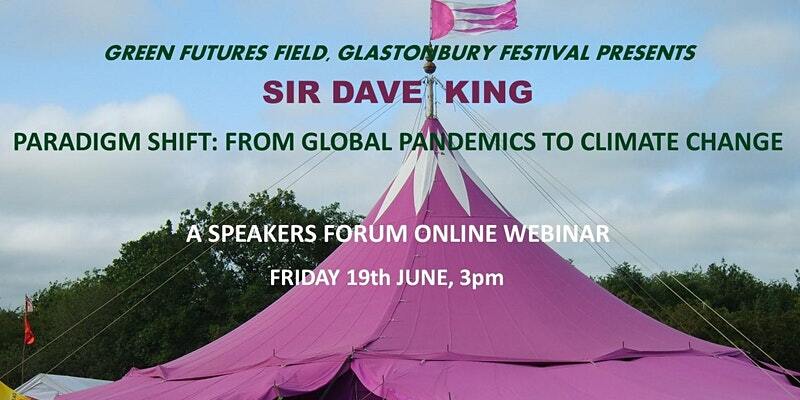A personal view by Marilyn Mason, June 2020
One of the great pleasures of working and living in a large city is the opportunity to participate in talks and discussions on a huge range of themes, often featuring world-class speakers and experts. Over several decades I’ve enjoyed lectures and conferences on Darwinism, statistics, economics, climate change, happiness, mindfulness, philosophy, social liberalism, faith schools, politics, the media, food, books... Often these take place in the early evening after work, maybe followed by a glass of wine and some interesting conversation or a book signing... a stimulating end to the day. One disadvantage of retiring was having to choose between the more limited selection of discussions available in a London suburb or making a rush-hour journey to central London.
Lockdown looked as though it would put an end to all that, but the pause in my education did not last long as almost all the organisers of talks and events went on-line, with the How To Academy, The Guardian, New Scientist, 5 x 15 and many more rapidly changing the way they worked to provide plenty of excellent discussions with speakers and participants from around the globe. Those of us who'd never heard of Zoom a few months ago suddenly became adept and extremely busy users.
The advantages are many, both to us as audience and to the organisers. For us: no time-consuming travel at inconvenient times – instead an hour or two of inspiring talk fitting easily between supper and catching up with TV and sleep (or possibly even while eating supper); probably a bit less alcohol as we don’t usually gaze at our screens or network over drinks after Zoom lectures; we get fascinating glimpses of famous people’s rooms and bookshelves; these events are much cheaper, usually offered free or for relatively small donations; and we don't have to dress up or even put on shoes to go along. For the organisers: no need to hire a huge hall or pay travel expenses to speakers, so that events that might once have been difficult and expensive now probably make a tidy profit; for the speakers, there’s no need to leave their cosy studies for the dubious pleasures of long-distance travel, a night in a hotel and addressing an unknown audience.
There are disadvantages of course. Audiences miss out on serendipitous conversations over drinks and maybe even opportunities to talk in person to famous speakers; there are sometimes technical hitches and events can get off to an infuriatingly slow start while participants find their way into virtual meetings and fiddle with their mics and connections (though this is improving with time and experience); Zoom’s free meetings are too short for some purposes and stop unceremoniously after 40 minutes (though there are ways round this); there are just too many tempting events – I reckon I could attend one or two almost every day – and some groups have actually increased the number of their meetings during the lockdown just because they can, not because more meetings are needed; less confident or less well connected internet users are excluded from this wealth of information and discussion. Chairs and speakers find themselves received in silence by a muted audience, which must be particularly disconcerting when they say something funny or controversial; proceedings and Q&As have to be quite formal and orderly, which can be time-consuming (but so is a helper wandering round a large hall with a mic trying to find the audience member that the chair pointed at); there’s less opportunity to sell books... And whatever the merits of Zoom et al for webinars, they are less suited to informal chat or singing in choirs, and most people will still want to socialise and sing in the real world.
Will we go back to the old ways? Perhaps not, as the advantages are clear to anyone who has ever organised speaker events, and I can testify to the difficulties. Should you book the room or the speaker(s) first, and what if there’s no date that suits all of them? How big a room should you hire – an empty large hall is expensive and embarrassing but too small a room might exclude some participants and limit ticket sales? Will the event cover its costs? What do you do with the speaker afterwards – dinner might seem like a nice thankyou gesture, but s/he might just be dying to get home? And for audiences too, the convenience might well outweigh the disadvantages, and perhaps as the novelty wears off and we all get used to this new normal, things will settle down and there will be fewer and better events jostling for our time and attention.
What lessons are there in all this for smaller community and environmental groups? Lectures and discussions on-line are much less risky financially – the costs are low, so attracting a large audience matters less though the convenience to most of our potential audience might in fact mean that we reach more people than usual. We could perhaps occasionally host nationally or internationally renowned speakers – even the most famous people are happy to talk to an audience when they have a book or an idea to promote. Our usual raffles and such-like fund-raisers might become difficult (but less necessary?), some local venues would lose income, and we might miss seeing each other at these events, but real-life meetings and conversations and Green Drinks and Kingston Carnival’s GreenZone will surely return one day. Some local talks and meetings have already migrated successfully to Zoom: Transition Town Kingston’s AGM and Kingston Biodiversity Networks’s talk on Orchards and Biodiversity in May; some London Transition and Capital Growth webinars; Kingston Libraries’ Eco-Festival in August... alongside national environmental discussions like the June Green Futures webinar advertised above and the Green Party’s midsummer celebration in July. It’s difficult to imagine that environmentalists will want to go back to travelling unnecessarily to events, and it may be a while before those of us in the more vulnerable age group or with relevant health issues will want to be in crowded indoor spaces. But that doesn’t mean that we have to be silent or bored or miss out on spreading good ideas – we may just have to get used to, and even enjoy, doing things differently.
Tags:
Archive
Use the calendar or list of months to view entries made on those dates.
| S | M | T | W | T | F | S |
|---|---|---|---|---|---|---|
| 1 | 2 | 3 | 4 | 5 | 6 | 7 |
| 8 | 9 | 10 | 11 | 12 | 13 | 14 |
| 15 | 16 | 17 | 18 | 19 | 20 | 21 |
| 22 | 23 | 24 | 25 | 26 | 27 | 28 |

